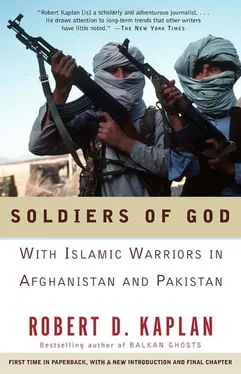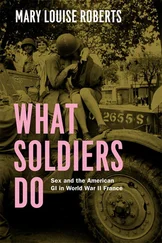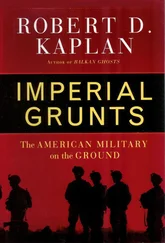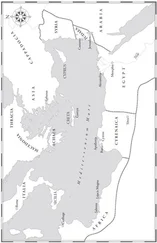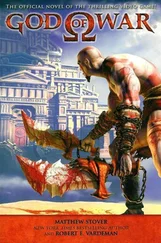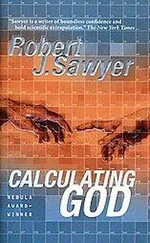You couldn’t help but like Gunston; for one thing, he genuinely liked everybody else. He could talk for hours on the most banal subjects with embassy mechanics and security officers who probably didn’t know who Byron was. If he harbored a trace of condescension toward anyone, I never noticed it. Perhaps it was just good breeding, but he never spoke badly of others behind their backs, even the few people in Peshawar who he knew disliked him. Gunston was like a relic from a bygone era, without the doubts and complexes of most people.
Gunston had lived in Blantyre, Cape Town, Johannesburg, and London before being enrolled, when he was fifteen, at Harrow, where Byron himself was educated. (Byron wrote poetry atop a grave in St. Mary’s churchyard, near the dormitory Gunston would live in.) Harrow was also a family tradition. Gunston’s was the fourteenth-oldest Harrovian family, going back to the 1700s.
Gunston lasted a year at the school. “I got bored of studying,” he once told me. “I thought it necessary to join up and fight communism in Rhodesia. I was running the British branch of the Save Rhodesia Campaign from Harrow. Politically naive, I now readily admit, but I was only sixteen. I had a terrible row with my family about it.”
Lying about his age, and making use of his father’s colonial service connections, Gunston returned to Africa and joined the Police Anti-Terrorist Unit of the British-South African Police, which was founded by Cecil Rhodes. Gunston was one of nine whites and ninety blacks who patrolled an area in the Zambezi escarpment the size of Wales, at the point where Rhodesia, Zambia, and Mozambique met. The man he replaced in the unit had been killed a few days before Gunston joined. In April 1980, after he served in the unit for eighteen months, Rhodesia became the independent state of Zimbabwe. Gunston was given forty-eight hours to leave the country.
He returned to England and a few months later enrolled at the Royal Military Academy at Sandhurst, where, after a six-month course, he was given a short service commission. It was a stormy period. Gunston kept getting into trouble with his weapons instructors. “Their way of teaching was pedantic,” he said. “They hadn’t seen action, I had.”
The next step was a place in the Queen’s Household Troops, better known as the Irish Guards, a branch of Her Majesty’s Footguards who patrol and troop the colors outside Buckingham Palace. “It was the sort of regiment where you were never asked how much money your father made but how many acres he owned.” Gunston’s career at the palace came to an abrupt end after two years as a lieutenant when a car he was driving hit a brick wall, resulting in broken ribs, arm, and leg.
Having recovered, at age twenty-one he was offered jobs at a merchant bank and the stock exchange, traditional careers of Irish Guardsmen. Instead, in August 1983, Gunston decided to win his spurs as a war photojournalist. “I was always good at drawing and composition, and it seemed to be one of the few professions where I could make use of my experience as a soldier, get paid, and be on the fringes of history at the same time.” Afghanistan in particular had caught his eye for personal reasons. Gunston’s step-grandfather, a Colonel Bertie Walker, had commanded a cavalry unit on the Northwest Frontier after the third British-Afghan war of 1919 and was decorated twice. Moreover, Afghanistan seemed like the kind of place where Byron might have turned up. And, like so many Brits, Gunston was enamored of Kipling. In addition to quoting Don Juan, he could recite “Arithmetic on the Frontier” by heart.
First Gunston did a little research on Afghanistan at the Institute of Strategic Studies in London, where he learned about a maverick mujahidin leader called Gulbuddin Hekmatyar, who it seemed should be avoided at all costs. Hekmatyar ran Hizb-i-Islami (Party of Islam), an extremist, anti-Western resistance faction that, though it went by the same name as Yunus Khalis’s party, shared few of its values. Traveling with Hekmatyar’s men, Gunston learned, was not considered wise. They had a reputation for stealing journalists’ gear, leaving them stranded in the war zone, and occasionally killing them.
“But, as it happened, two days before I left London on my first trip to the Northwest Frontier, I met a charming old Pakistani major at the Cavalry & Guards Club who gave me a personal introduction to General Fazle Haq, the governor of the Northwest Frontier at the time, who arranged for Hekmatyar to take me inside. I decided to let fate take its course.”
The foray had a mad, magical quality to it. Gunston and a group of Hekmatyar’s fighters made it into the center of Kabul in the middle of the night undetected. But the guerrillas couldn’t decide whether to aim their mortar and recoilless rifle at the Afghan Defense Ministry or the headquarters of the Soviet High Command, some four hundred yards apart. They asked Gunston what they should do. “I held no strong views either way,” he said. Eventually, they picked the Defense Ministry. Then the mujahidin realized that they had neglected to bring a shovel to dig in the mortar and rifle. So they knocked on house doors, waking people up, until they found someone who would lend them a shovel. The mujahidin made a lot of noise digging up the street only twenty yards from the mud wall surrounding the Ministry building. Finally, after shouts of “Allahu akbar” (God is great), they opened fire with five bursts of the rifle and a half-dozen mortar shells. A section of the Defense Ministry erupted in flames. With no ammunition left, the guerrillas and Gunston ran away as every Communist position in the area haphazardly opened fire. “It wasn’t such a bad trip,” Gunston said, and he recalled a stirring snippet from Childe Harold’s Pilgrimage:
Perils he sought not, but ne’er shrank to meet:
The scene was savage, but the scene was new;
This made the ceaseless toil of travel sweet…
The following year, he went back with Hekmatyar’s forces. In Laghman province, north of the Kabul-Jalalabad road, Gunston and his escort from Hekmatyar’s Hizb-i-Islami were caught in an ambush mounted by Tajiks from Jamiat. In the fracas, Gunston was bayoneted in the leg with the needle-point blade of a Chinese assault rifle by a fourteen-year-old who Gunston claims was “high on dope.” Next, his horse was killed by a direct hit from a rocket-propelled grenade. Hekmatyar reported Gunston dead, a fact that the British Foreign Office relayed to his family in England. As it turned out, Gunston was taken prisoner by Jamiat forces and sent to the Panjshir Valley, where he met up with the Lion of the Panjshir, Ahmad Shah Massoud.
“I arrived the unwanted guest of Massoud in June 1984,” Gunston recalled. “He was as displeased with my appearance as I was to be there. Those mountains in the Hindu Kush are damned high, and it took ten days of tramping about to find him. I hate mountains! I followed Massoud for a week. He was terribly charismatic, with the same military professionalism I recognized from my army days. He would start after dawn, listening to commanders’ problems before leaving for another location four or five hours and another bloody mountain away. Then he would listen to sitreps [situation reports] and give orders, working through the night. All the while there was heavy, high-altitude carpet bombing by Tu-16s. I never established a rapport with Massoud — my French is as bad as my Farsi — though I did manage an interview, printed on the back page of Newsweek.” It appeared in the magazine on October 8, 1984.
Another positive outcome of his detour in the Panjshir Valley was a photograph that is still Gunston’s most famous: of a Soviet MiG pilot who lies dead, parachute collapsed, still in his ejection seat in an open field. The pilot’s empty hand is cocked to his head, through which there is a hole, with a heap of brain tissue beside it. Rob Schultheis, in the February 15, 1987, issue of The Washington Post Magazine, wrote that “you could see the whole harsh story”: the pilot’s leg had broken off as his ejection seat cleared the cockpit. In terrible pain, he then shot himself after he landed to avoid falling into the hands of the mujahi-din. A guerrilla came along later and stole the pistol from the dead man’s hand.
Читать дальше
